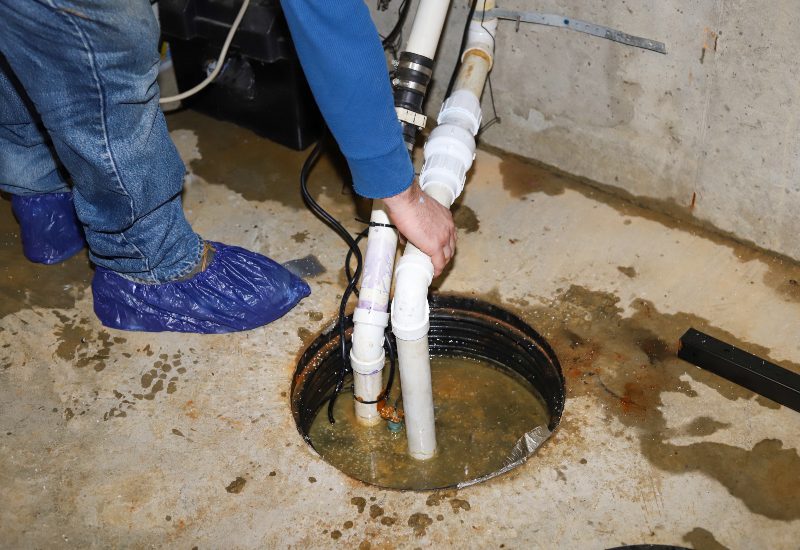Seamless Well Pump Replacement: Recovering Your Water with Accuracy
Seamless Well Pump Replacement: Recovering Your Water with Accuracy
Blog Article
Comprehending the Key Parts of Effective Water Filtration Equipments

Relevance of Water Purification Solution
Water filtration systems play a crucial duty in making certain accessibility to risk-free and clean alcohol consumption water by properly getting rid of impurities and pollutants. These systems are vital in resolving the expanding problems over water quality and the potential health risks associated with taking in polluted water. By utilizing various filtration mechanisms such as reverse osmosis, triggered carbon, and UV sterilization, water filtration systems can efficiently remove unsafe substances like microorganisms, infections, heavy steels, and chemicals from the water.
Additionally, water filtering systems assist to improve the preference and odor of water by removing chlorine, debris, and other pollutants that can impact its quality. Water Treatment. This enhancement in water top quality not only makes it extra palatable yet additionally motivates individuals to consume alcohol an appropriate quantity of water daily, advertising better hydration and total health and wellness
Kinds of Filtration Parts

Physical filters are designed to physically strain out contaminations from the water. These filters can be constructed from materials like ceramic, carbon, or perhaps sand, and they work by capturing fragments larger than the filter's pores as water goes through.
Chemical filters utilize different chemical procedures to get rid of impurities from the water. Instances consist of activated carbon filters, which adsorb pollutants, and reverse osmosis membranes, which utilize stress to different contaminants from the water.
Biological filters utilize living organisms like germs or algae to break down raw material and toxins in the water. These filters are typically utilized in wastewater therapy plants or all-natural water filtration systems.
Recognizing the various types of filtration parts is critical for selecting one of the most suitable water filtering system for certain filtration demands.
Feature of Sediment Filters
Debris filters play an essential function in water filtering systems by properly recording solid bits put on hold in the water. These filters are commonly the first line of defense in a filtering system, getting rid of larger particles such as sand, silt, dirt, and rust prior to the water relocates via finer filtration stages. By capturing these debris, the filters prevent them from getting to downstream parts, therefore prolonging the life expectancy and effectiveness of the entire system.
Overlooking this upkeep can lead to obstructing, decreased water circulation, and compromised filtering performance. Overall, sediment filters are essential elements that add significantly to the efficiency of water purification systems.
Role of Triggered Carbon Filters
Playing an essential function in water purification systems, turned on carbon filters contribute in getting rid of contaminations and contaminants from the water system. These filters are made to adsorb and trap a wide variety of pollutants, including chlorine, unstable natural substances (VOCs), pesticides, and herbicides. The triggered carbon product has a huge surface, enabling the effective capturing of impurities via a procedure called adsorption. As water travels through the filter, the activated carbon attracts and holds onto the pollutants, making certain that the water that appears beyond is cleaner and safer for consumption.
Triggered carbon filters are highly effective at boosting the taste and odor of water by decreasing chemicals that can affect its top quality. Due to their adaptability and dependability, triggered carbon filters are a key part redirected here in guaranteeing that water is detoxified to the greatest standards prior to reaching customers.
Comprehending Reverse Osmosis Systems
Reverse osmosis systems are innovative water filtration systems that employ an advanced process to remove pollutants and impurities you could try here from alcohol consumption water. These systems work by using stress to the water, forcing it with a semi-permeable membrane layer.
One trick benefit of reverse osmosis systems is their capacity to eliminate a wide variety of impurities, including heavy steels, liquified bacteria, solids, and viruses. This makes them extremely reliable in improving the overall high quality and safety and security of drinking water. Additionally, reverse osmosis systems are reasonably low-maintenance and can be mounted under the sink or in a main purification system, giving hassle-free accessibility to tidy water throughout the house. On the whole, recognizing just how reverse osmosis systems function can aid people make notified choices regarding their water filtering requirements.
Final Thought
Finally, effective water purification systems are critical for ensuring safe and tidy drinking water. The key parts of these systems include sediment filters, turned on carbon filters, and reverse osmosis systems. By understanding the feature and function of each component, people can make educated decisions when picking a water filtering system. It is essential to focus on the high quality of water in order to promote overall wellness and wellness.
Water filtration systems play a crucial function in guaranteeing accessibility to clean and secure drinking water by effectively eliminating contaminants and pollutants. By using various filtering mechanisms such as reverse osmosis, triggered carbon, YOURURL.com and UV sanitation, water filtration systems can effectively remove hazardous substances like bacteria, viruses, hefty steels, and chemicals from the water supply.
Sediment filters play a crucial function in water filtration systems by efficiently catching strong particles put on hold in the water (Water Treatment).Playing a crucial function in water filtering systems, turned on carbon filters are instrumental in eliminating contaminations and contaminants from the water supply.Reverse osmosis systems are sophisticated water filtration systems that utilize an advanced procedure to remove pollutants and pollutants from alcohol consumption water
Report this page